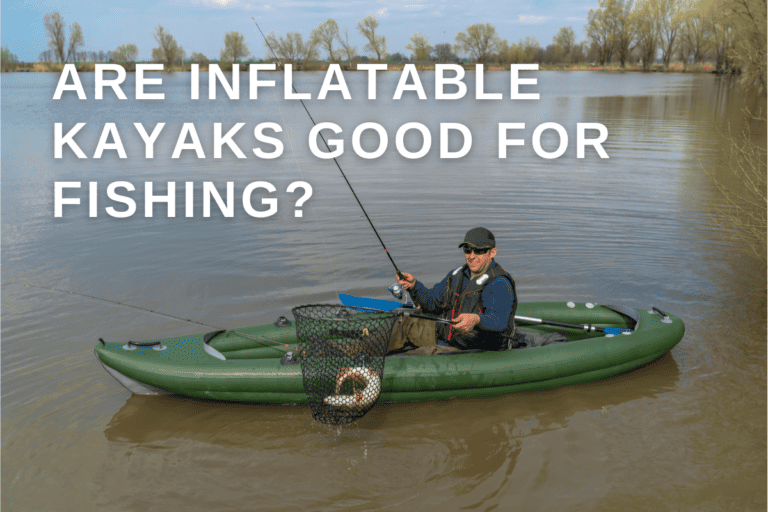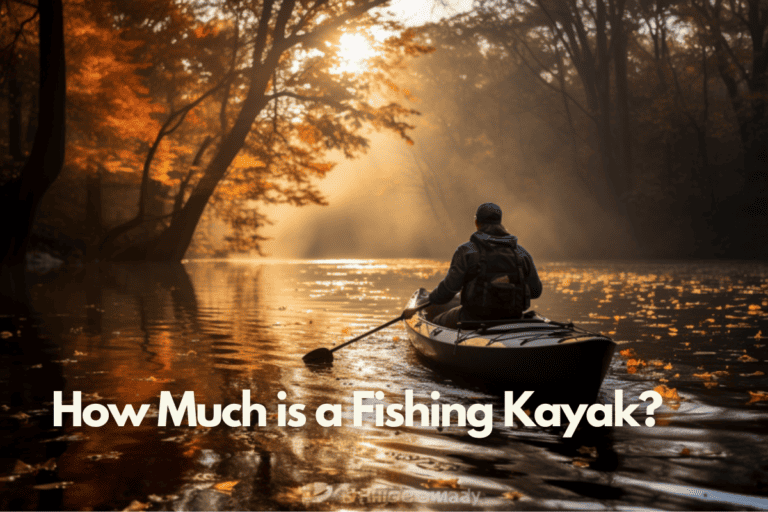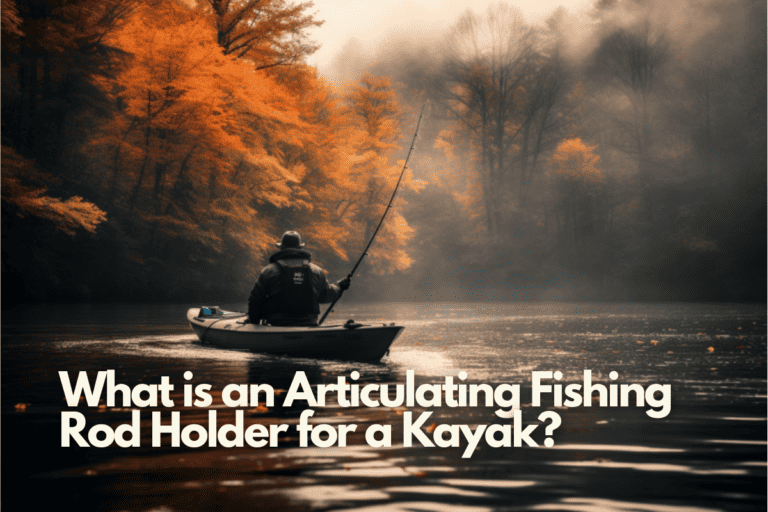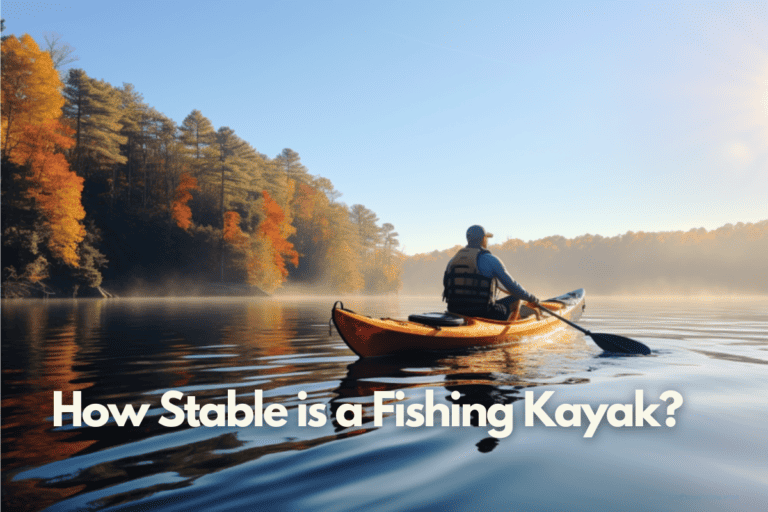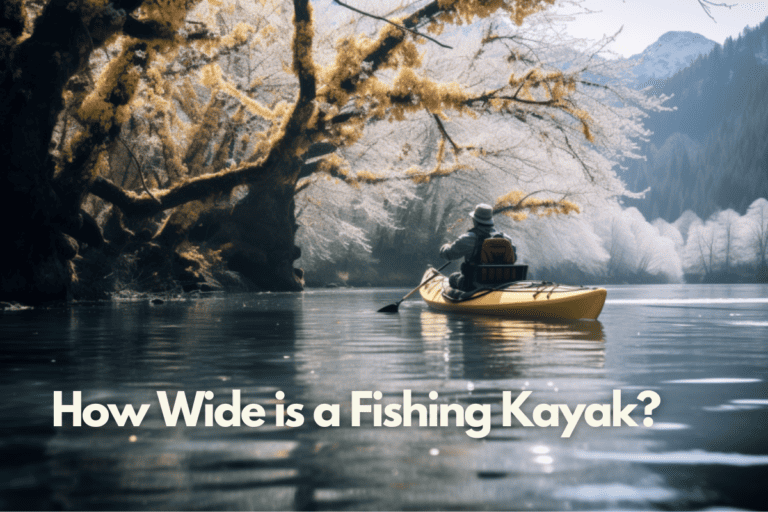Fishing Kayak vs Small Boat: A Comprehensive 2023 Comparison
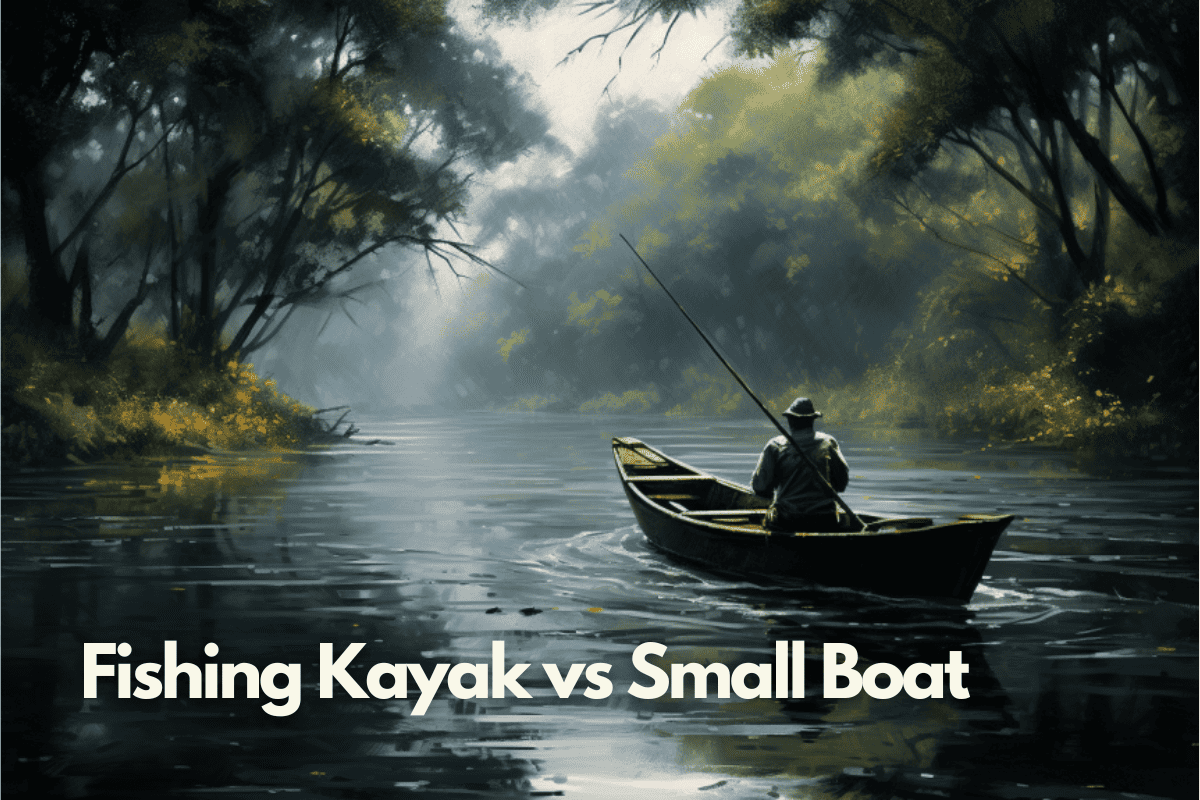
There’s something magical about the serenity of still waters, the unspoken promise of a fishing line disappearing beneath the surface, and the tranquility of waiting for that exhilarating tug. Fishing is so much more than just a pastime – it’s a connection to nature, a test of patience, and a peaceful escape from the hustle and bustle of modern life.
But before we dive into the depths and explore these clear, cool tributaries, there is a decision to be made, one that could shape your entire fishing experience: should you opt for a fishing kayak vs small boat?
As a long-time fisherman, I’ve spent countless sunrises and sunsets both on a fishing kayak and on a boat, and I’m here to share my take on this age-old debate. From the humble fishing kayak to the tried-and-true small boat, let’s navigate the waters of this intriguing comparison.
Fishing Kayak vs Small Boat
Fishing Kayak vs Small Boat, a topic of debate among anglers, delves into the pros and cons of each vessel. This comparison aims to guide enthusiasts in making an informed choice based on their fishing needs.
As the sun started its descent, casting an orange glow over the calm water, I remember loading up my trusty kayak after a long day of fishing. I had set out at dawn, the cool morning air filled with anticipation and the promise of clear, serene waters. While most of my friends opted for motorized boats, I was always one for the simplicity, intimacy, and stealth of a fishing kayak.
But let’s not get carried away by my fond memories – the battle between fishing kayaks and small boats is a long-standing one, with each option offering its unique advantages. As an avid fisherman with experiences on both types of vessels, today I’ll take you through a comprehensive comparison to help you make an informed choice for your future fishing endeavors.
Advantages and Differences Between Boat and Kayak Fishing

Advantages and Differences, a crucial aspect of the boat vs. kayak debate, highlight the unique benefits each offers. While boats provide speed and space, kayaks offer accessibility to shallow waters and affordability.
Spending weekends on my best friend’s pontoon boat has shown me the allure that boat fishing holds. With plenty of space, a shelter from unexpected weather, and the ability to venture into the deep end, fishing on a boat can feel like a miniature vacation! Boats, embodying power and stability, are suited to the sprawling canvas of oceans, towering rivers, and colossal lakes.
Conversely, a Kayak trip takes me back to nature. The intimacy of being closer to the water, weaving through narrow alleyways of hidden aquatic kingdoms, and the casual convenience of pulling up ashore anywhere makes kayak fishing easier and more accessible. Kayaks emphasize stealth, simplicity, and are perfect for quietly paddling along serene inlets, circumnavigating tiny islands, and hiding in hushed coves.
Types of Fishing Boats and Kayaks: Features, Design, and Cost
Types of Fishing Vessels, which vary based on design and functionality, range from powerful bass boats to sleek pedal kayaks. For instance, bass boats, designed for speed and power, differ in cost from angler kayaks, which prioritize specific fishing functionalities.
| Vessel Type | Features | Design | Average Cost |
|---|---|---|---|
| Bass Boats | Powerful engines, ample storage | Sporty | $20,000-$50,000 |
| Aluminum Boat | Suitable for freshwater, versatile | Flat-bottomed | $1,000-$5,000 |
| Pontoon Boats | Spacious, ideal for groups | Flat, large | $50,000-$100,000 |
| Economy Kayaks | Basic, suitable for beginners | Sleek | $200-$500 |
| Angler Kayaks | Additional features for fishing | Streamlined | $500-$2,000 |
| Pedal Kayaks | Paddle and pedal systems, top-tier features | Advanced | High-end ($2,000+) |
Does speed and storage make your heart race? Look no further than bass fishing boats, the speedy, roomy sports cars of the fishing world. Somewhat of a middle ground, aluminum fishing boats excel in freshwater ventures. If, however, enjoyable company and shared laughter over fishing lines is your idea of a good time, spacious pontoon boats are your holy grail.
On the other hand, kayaks range from the economy version, basically a floating platform with a seat, suitable for the beginner or the minimalist. The angler variant is a step up, with a few fishing-specific tweaks and tweaks, while the pedal kayak is a gem for those who want to flex their leg muscles or want the double combo of a paddle and pedal system.
Pros and Cons of Fishing Boats vs Kayaks
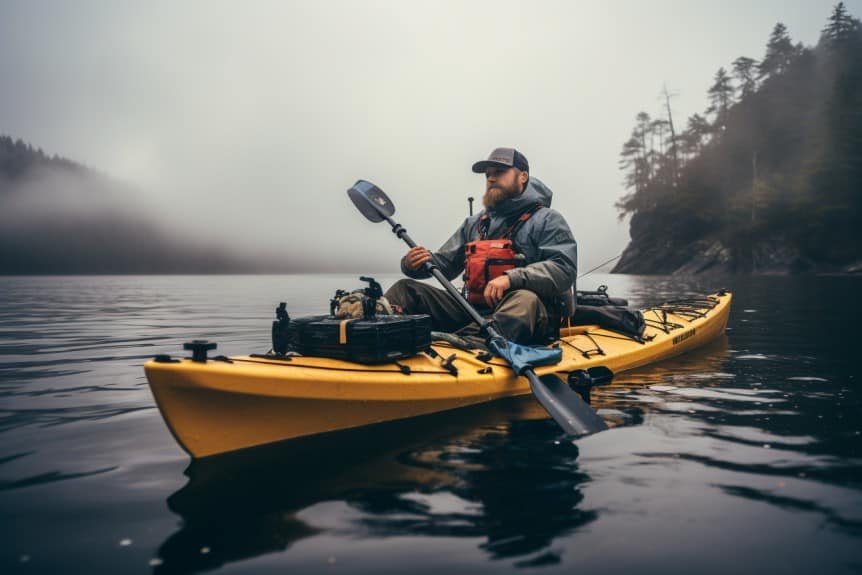
Pros and Cons, which guide anglers in their vessel choice, highlight the strengths and limitations of each. Boats, known for their spaciousness and deep-water capabilities, contrast with kayaks, appreciated for their portability and low maintenance.
| Aspect | Fishing Boats | Fishing Kayaks |
|---|---|---|
| Pros | – Faster speed | – Affordable |
| – More space and comfort | – Portable | |
| – Suitable for deep-sea fishing | – Access to shallow areas | |
| Cons | – Expensive | – Slower speed |
| – Requires fuel and maintenance | – Limited space | |
| – Needs a trailer for transport | – Physical effort required |
Boats offer a roomy haven to stretch, roam, and store with the added advantage of speed and a promise of stability even in precarious waters. However, they gulp up fuel, and costs quickly rise with their needs – a trailer, a berth, maintenance, and so forth.
In contrast, kayaks are budget-friendly, easily transportable, and excel in slipping into hidden corners inaccessible to boats. The serene silence they offer while navigating fish teeming waters is unmatched. Yet they do fall short when it comes to space, speed, and can often warrant a test of your fitness.
Factors to Consider When Choosing Between a Boat and a Kayak for Fishing: Comfort, Space, Location, Safety, and Budget
Factors to Consider, which are decision-making elements for anglers, encompass a range of considerations from comfort to cost. Comfort, often linked with boats due to their spacious design, contrasts with the budget factor, where kayaks typically emerge as the economical choice.
- Comfort and Space: Boats offer more room and seating options. Kayaks are more compact but modern designs prioritize angler comfort.
- Location: Boats are ideal for deep waters and oceans. Kayaks can access shallow and inland waters.
- Safety: Boats are generally more stable and safer. Kayaks require caution, especially in challenging waters.
- Budget: Boats are a significant investment with added costs like fuel and maintenance. Kayaks are more budget-friendly but can range in price based on features.
When choosing between a boat and a kayak, it really boils down to what ticks your boxes.
Are you in need of a comfortable recliner or will a simple seat suffice? Do you value the freedom of space to sprawl or can you bundle your belongings economically? Does your ideal fishing spot feature vast horizons of open ocean or tucked away creeks and ponds? And importantly, what are the safety considerations of the waters you frequent?
Last but certainly not least, does your wallet agree to your fiscal responsibilities of running a boat, or does it lean more towards a one-time kayak investment?
Final Thoughts

Weighing anchor and setting the final cast, I would argue there is no right or wrong choice between a fishing boat and a kayak. It’s all a matter of aligning our preferences, needs, fishing goals, and budget with the distinct experiences that each vessel offers. While the powerful roar of a boat engine can be alluring to some, others might find solace in the gentle lap of water against their kayak.
So what will it be for you? A fishing kayak or a small boat? Whichever you choose, remember, at the end of the day, it is the simple joy of fishing that bonds us all together.
Frequently Asked Questions (FAQ)
Q: What is the difference between a fishing kayak and a small boat?
A: The main difference lies in their design and purpose. A fishing kayak is a small, narrow watercraft that is propelled by paddling, while a small boat, such as a jon boat or bass boat, is a motorized vessel that is typically larger and offers more space.
Q: Which is better for fishing, a jon boat or a kayak?
A: It depends on personal preference and the fishing conditions. Jon boats are great for fishing in larger bodies of water and can accommodate more equipment, while kayaks are more maneuverable and better suited for fishing in smaller, hard-to-reach areas.
Q: Can I fish from a kayak?
A: Absolutely! Fishing from a kayak is a popular and enjoyable activity for many anglers. Kayaks are designed with fishing in mind, and they offer stability, maneuverability, and easy access to various fishing spots.
Q: How does fishing from a kayak compare to fishing from a small boat?
A: Fishing from a kayak provides a unique experience that allows you to get closer to nature and explore areas that larger boats can’t reach. However, small boats offer more space and storage options, making it easier to bring along larger amounts of fishing gear.
Q: What are the advantages of using a kayak for fishing?
A: Using a kayak for fishing offers several advantages. It allows you to access hard-to-reach areas, navigate in shallow waters, and enjoy a quiet and peaceful fishing experience. Additionally, kayaks are portable, easy to transport, and have lower maintenance costs compared to motorized boats.
Q: Can I switch from a bass boat to a kayak for fishing?
A: Yes, many anglers have successfully made the switch from a bass boat to a kayak for fishing. While it may require some adjustments and getting used to, kayaking offers a whole new world of fishing opportunities and allows you to explore different fishing spots.
Q: Do kayaks and jon boats have different advantages in specific fishing scenarios?
A: Yes, kayaks excel in smaller, more confined fishing areas such as rivers, creeks, and ponds. They are also great for fishing in areas with rough waters where larger boats may struggle. On the other hand, jon boats are better suited for fishing in larger bodies of water, such as lakes and reservoirs.
Q: Can I fish in a kayak in rough water?
A: While it is possible to fish in a kayak in rough water, it is not recommended for inexperienced paddlers. Rough waters can be challenging to navigate in a kayak, and safety should always be a priority. It is important to assess the water conditions and your kayaking skills before venturing out.
Q: How much water can a kayak handle?
A: Kayaks are designed to stay afloat in water, and they have a maximum weight capacity specified by the manufacturer. It is important to check the weight capacity of your kayak and avoid overloading it to ensure stability and safety on the water.
Q: Are fishing kayaks and small boats suitable for beginners?
A: Both fishing kayaks and small boats can be suitable for beginners, depending on their comfort level and experience with watercraft. Kayaks are generally easier to learn and maneuver, while small boats with motors may require more time to familiarize yourself with the controls and handling.
